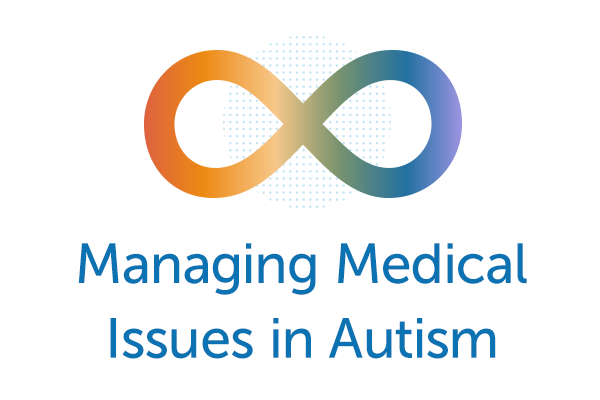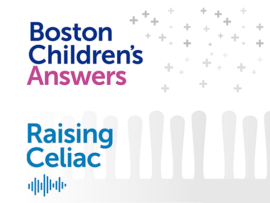Avoidant/Restrictive Food Intake Disorder in Children and Adolescents with Autism Spectrum Disorder (33 min.)
In this presentation, Dr. Julia Carmody describes the background, diagnosis, and treatment of Avoidant/Restrictive Food Intake Disorder (ARFID), and the specific challenges in addressing ARFID in children and adolescents with Autism Spectrum Disorder. Dr. Carmody covers several different treatment and management options specific to children and adolescents with Autism Spectrum Disorder. This stand-alone course* is one of a 5-part series: Managing Medical Issues in Autism. The other topics in the series cover Behaviors in Autism and GI Issues, Treatment of Children with Autism and GI Problems, Communication of Pain and Illness with Autism, and Looking for Answers: the Microbiome in Autism. The series was made possible thanks to the generous support of the American Institute for Neuro-Integrative Development (AIND). Click here for an introduction to the entire series.
* Each course of the series may be viewed independently for credit.
$50.00
Description
Instructor in Psychology, Harvard Medical School
 Timothy Buie, MD
Timothy Buie, MDCourse Director
Co-Director of the GI-Autism Clinic and Senior Physician in the Pediatric Gastroenterology Department at Boston Children’s Hospital
Assistant Professor of Pediatrics, Harvard Medical School
In this presentation, Dr. Carmody describes the background, diagnosis, and treatment of Avoidant/Restrictive Food Intake Disorder (ARFID), and the specific challenges in addressing ARFID in children and adolescents with Autism Spectrum Disorder. Dr. Carmody covers several different treatment and management options specific to children and adolescents with Autism Spectrum Disorder. This stand-alone course* is one of a 5-part series: “Managing Medical Issues in Autism.” The other topics in the series cover Behaviors in Autism and GI Issues, Treatment of Children with Autism and GI Problems, Communication of Pain and Illness with Autism, and Looking for Answers: the Microbiome in Autism. The series was made possible thanks to the generous support of the American Institute for Neuro-Integrative Development (AIND). Click here for an introduction to the entire series.
Learning Objectives:
At the conclusion of this educational program, learners will be able to:
- Explain Avoidant Restrictive Food Intake Disorder and restate treatment approaches to management.
- Discuss the DSM 5 Criteria, to make the diagnosis of ARFID compared to selective eating or other eating disorders.
- Understand the most common maintaining mechanism for Avoidant Eating Behaviors is sensory sensitivity.
Accreditation
 In support of improving patient care, Boston Children’s Hospital is jointly accredited by the Accreditation Council for Continuing Medical Education (ACCME), the Accreditation Council for Pharmacy Education (ACPE), and the American Nurses Credentialing Center (ANCC), to provide continuing education for the healthcare team.
In support of improving patient care, Boston Children’s Hospital is jointly accredited by the Accreditation Council for Continuing Medical Education (ACCME), the Accreditation Council for Pharmacy Education (ACPE), and the American Nurses Credentialing Center (ANCC), to provide continuing education for the healthcare team.
Social Worker
As a Jointly Accredited Organization, Boston Children’s Hospital is approved to offer social work continuing education by the Association of Social Work Boards (ASWB) Approved Continuing Education (ACE) program. Organizations, not individual courses, are approved under this program. State and provincial regulatory boards have the final authority to determine whether an individual course may be accepted for continuing education credit. Boston Children’s Hospital maintains responsibility for this course. Social workers completing this course receive 0.75 ACE CE continuing education credits.
Psychologist
Continuing Education (CE) credits for psychologists are provided through the co-sponsorship of the American Psychological Association (APA) Office of Continuing Education in Psychology (CEP). The APA CEP Office maintains responsibly for the content of the programs. This course has been approved for 0.75 continuing education credits.
Physician
Boston Children’s Hospital designates this live activity for a maximum of 0.75 AMA PRA Category 1 Credits ™. Physicians should claim only credit commensurate with the extent of their participation in this activity.
Physician Assistant
Boston Children’s Hospital has been authorized by the American Academy of Physician Associates (AAPA) to award AAPA Category 1 CME credit for activities planned in accordance with AAPA CME Criteria. This activity is designated for 0.75 AAPA Category 1 CME credits. PAs should only claim credit commensurate with the extent of their participation.
Nurse
Boston Children’s Hospital designates this activity for 0.75 contact hours for nurses. Nurses should only claim credit commensurate with the extent of their participation in the activity.
Dietician
** Refer to your Professional Development Portfolio Guide for LNCs or Pls. Completion of this RD/DTR profession-specific or IPCE activity awards CPEUs(One IPCE credit = One CPEU).
If the activity is dietetics-related but not targeted to RDs or DTRs, CPEUs may be claimed which are commensurate with participation in contact hours (One 60 minute hour = 1 CPEU).
RDs and DTRs are to select activity type 102 in their Activity Log. Sphere and Competency selection is at the learner’s discretion.
Physical Therapist
Boston Children’s Hospital is an approved provider designated by the APTA of MA. Boston Children’s approves Managing Medical Issues in Autism: Avoidant/Restrictive Food Intake Disorder in Children and Adolescents with Autism Spectrum Disorder for 0.75 Continuing Education Hours.
Disclosure Policy
Boston Children’s Hospital adheres to all ACCME Essential Areas, Standards, and Policies. It is Boston Children’s policy that those who have influenced the content of a CE activity (e.g. planners, faculty, authors, reviewers and others) disclose all relevant financial relationships with commercial entities so that Boston Children’s may identify and resolve any conflicts of interest prior to the activity. These disclosures will be provided in the activity materials along with disclosure of any commercial support received for the activity. Additionally, faculty members have been instructed to disclose any limitations of data and unlabeled or investigational uses of products during their presentations.
Disclosure Statement
The following planners, speakers, and content reviewers, on behalf of themselves, have reported the following relevant financial relationships with any entity producing, marketing, reselling, or distributing health care goods or services consumed by, or used on patients:
Julia Carmody, PhD: None
Tim Buie, MD: None
Additional information
| Credit Type | AAPA Category 1 (Physician Assistant), AMA PRA Category 1 Credits™ (MD, DO, NP, PA), APA CE (Psychologist), APTA CE Hours (Physical Therapist), ASWB ACE (Social Worker), CDR CPEU (Registered Dietitian), Contact Hours (Nurse, Nurse Practitioner) |
|---|---|
| Duration | |
| Format | |
| Topic | Autism, Behavioral Health, Gastroenterology/nutrition, Neurology, Psychology, Social Work |
| Expiration Date | |
| Release Date |



